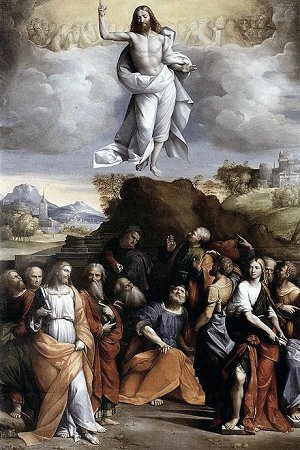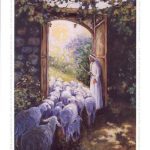An African proverb says “Birds sing not because they have answers but because they have songs.” Charles Wesley wrote hymns not for writing sake but ‘written to feed the faith, steel the nerve, and fire the soul.’ Born at Epworth, December 18, 1707 and died March 19, 1788, Charles Wesley has been assigned the appellation of the “Bard of Methodism.”
On his experience and assurance of his salvation, Charles Wesley wrote in his journal, “The Day of Pentecost. Sun., May 21st, 1738. I waked in hope and expectation of His coming. At nine my brother and some friends came, and sang a hymn to the Holy Ghost. My comfort and hope were hereby increased. In about half-an-hour they went: I betook myself to prayer; the substance as follows:– “Oh Jesus, thou hast said, ‘I will come unto you ; ‘thou hast said, ‘ I will send the Comforter unto you ; thou hast said, ‘My Father and I will come unto you, and make our abode with you.’ Thou art God who canst not lie; I wholly rely upon thy most true promise: accomplish it in thy time and manner.” Charles Wesley on his recovery, soul and body looked into the Scripture for what is his hope. In assurance of his hope in Christ, he said, “… truly my hope is even in thee.” I then cast down my eye, and met, “He hath put a new song in my mouth, even a thanksgiving unto our God. Many shall see it, and fear, and shall put their trust in the Lord.” Afterwards I opened upon Isaiah 40:1: “Comfort ye, comfort ye, my people, saith your God: speak ye comfortably to Jerusalem, and cry unto her, that her warfare is accomplished, that her iniquity is pardoned; for she hath received of the Lord’s hand double for all her sin.” I now found myself at peace with God, and rejoiced in hope of loving Christ.”
Based on his salvation experience, the discipline and theology of Charles Wesley’s hymns provides a good orientation and revelation that Jesus is no longer bound by place or time, Alleluia. Charles Wesley’s hymn, “Hail the Day” is considered to be the most popular of all Ascension texts in English-language worship. Charles Wesley put into verse the theology and mission of God , for example the hymn, elaborates on the royalty and sovereignty of the ascended Christ, “So then the Lord Jesus, after he had spoken to them, was taken up into heaven and sat down at the right hand of God” (Mark 16:19). The hymn functioned as Charles and John Wesley prescribed as “a little body of experimental and practical divinity.”
Charles Wesley on Ascension points us to the importance of a changed heart in order to see and experience Jesus’s power, rising above every human limitations and lockdown, “Hail the day that sees him rise, Alleluia!, to his throne beyond the skies, Alleluia, Christ, the Lamb for sinners given, Alleluia!, enters now the highest heaven, Alleluia!.”
The second stanza of the hymn not only refers to one of the royal psalms, it points to a pathway to salvation and deliverance, a guide and hope to living the Christian life even in pandemic. The book of Psalm chapter 24 verse 9 underpinned these emphases and vibrated through verse two of the hymn, “There for him high triumph waits; Alleluia!, lift your heads, eternal gates, Alleluia!, He has conquered death and sin; Alleluia!, takes the King of glory in. Alleluia!
Charles Wesley’s salvation and the theology of his hymns, especially on Jesus’s Ascension reminds us that our warfare and pandemic is accomplished, our iniquity is pardoned, we now found ourselves ‘at peace with God, and rejoiced in hope of loving Christ.’ Celebrating Charles Wesley Day at the same time on Ascension Day calls us to rejoice because our Lord is in the highest heaven, ‘yet he loves the earth he leaves … still he calls us all his own … still for us he intercedes … his atoning death he pleads … near himself prepares our place… he the firstfruits of our race.’ Our hope in such a time of COVID-19 is that, Jesus remains with us, even as partners of our endless reign. Let us pray that we may find our heaven of heavens in Jesus Christ as Charles Wesley found in Christ, Alleluia.











Recent Comments